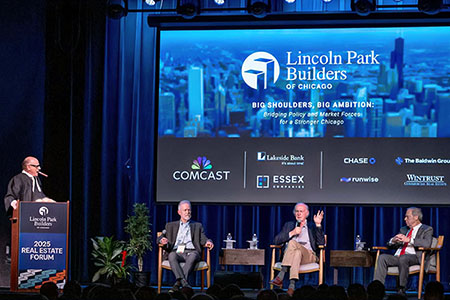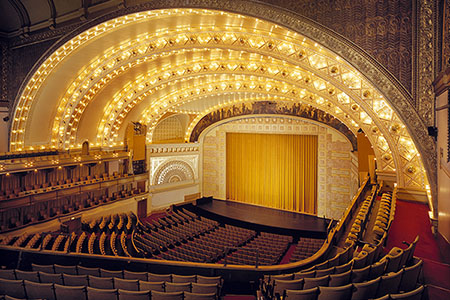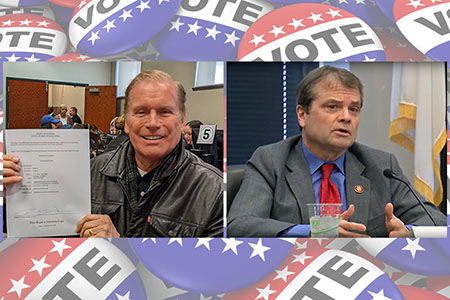
April 30 auction will include signed baseball bats, batting helmets, 16-inch softballs; vintage hockey sticks, boxing gloves; historic sporting event tickets, beer advertising signs, Illinois license plates, L-train signage; historic black-and-white photos of Windy City sports palaces, North Side Chicago saloons, Chicago politicians, sports celebrities; and a terra cotta lion’s head dating to the 1800s.
Apr. 25, 2022 – Al Rompza, owner of Chicago Joe’s restaurant and saloon for the past 34 years, is one of the toughest guys on Chicago’s North Side. Unfortunately, this week Rompza has a tear in his eye. The famous Chicago Joe’s is closed for business, a casualty of the pandemic. At 10:00 a.m. on Saturday, April 30, the historical contents of the property at 2256 West Irving Park Road will be auctioned. This writer met Rompza on the handball court at the Irving Park YMCA in 1979. Big Al hit a backwall kill shot so hard that the black rubber handball exploded on the front wall of the court. During our after-game chat in the locker room, Al noticed that I was wearing a Chicago Daily News softball jersey with Billy Goat Saloon lettered on the back. Al asked if I needed a sponsor for my 16-inch softball team. Back then, I was the captain of Mike Royko’s Chicago Sun-Times 16-inch softball team. I also managed and played short center for Solidarity, a championship team that competed at Oz Park and Kosciuszko Park. At that time, Rompza, a burly man of Polish descent, owned Burwood Tap on the corner of Burling & Wrightwood in Lincoln Park. Al was a great sponsor, and members of the Solidarity team were great drinkers – it was a very successful marriage.
The team was named Solidarity because at least 15 of the players on the roster were of Polish-American descent. The rest were Italians and Greeks. One was Jewish, and this writer has French and Bohemian blood. My Risk softball team was launched in 1985, and that group also was sponsored by Burwood Tap, which Al’s father, Joe Rompza, originally opened. The Rompza family lived in apartments above the saloon. In 1988, Al Rompza purchased the old Grover’s Oyster Bar and launched Chicago Joe’s, featuring an interior festooned with antiques and Chicago memorabilia. Soon after, Rompza once again offered to sponsor the Risk softball team, and that marriage lasted 30 years.
It also was a great place to meet a future wife. After Risk softball practice in May 1992, I met Realtor Sara Benson at Chicago Joe’s. I learned she was an exclusive buyer’s broker, and as real estate editor of the Chicago Sun-Times, I asked her to write a guest column on the subject. A romance followed, and we were married in August 1994. Around that time, Al and I shared a few bachelor party cocktails, and ended up skinny dipping in his Old Irving Park home swimming pool at 4 a.m. Over the years, Rompza has sponsored several men’s and women’s neighborhood softball teams, which often partied on the expanded outdoor dining patio with space for 80 people. White Sox Hall of Famer Minnie Miñoso was a regular customer at the saloon, and so was the Cubs cheerleader, Ronnie “Woo Woo” Wickers. Later, Risk was renamed Vintage Risk, a legendary team with a roster of Chicago 16-inch Softball Hall of Fame players. Chicago Joe’s sponsored the Risk and Vintage Risk teams for three decades. Auction attendees should note that the walls and ceilings at Chicago Joe’s are covered with signature baseball bats, batting helmets, vintage hockey sticks, old boxing gloves, historic sporting event tickets, signed championship Risk and Vintage Risk 16-inch softballs, and a collection of historic black-and-white photos of Windy City sports palaces – from Comiskey Park and Wrigley Field to the original Soldier Field.
Highlighted in the Chicago Joe’s historic collection are neighborhood scenes, including vintage photos of North Side Chicago saloons and neighborhood scenes such as State Street and Maxwell Street, old beer advertising signs, historic Illinois license plates, and vintage L-train signage, along with a collection of historic newspaper front pages from the Chicago Daily News and Chicago Tribune. There also is an original 1920s event poster starring Billie Holiday from Colosimo’s Café, a restaurant and nightclub once owned by mafioso James “Big Jim” Colosimo.
“My Dad is sad about closing the restaurant and hosting the auction,” said son Bradley Rompza. “He put it all together. It took years to acquire all the antiques and memorabilia.”
Even the 15-foot-tall Chicago Joe’s neon marquee will go on the auction block, but Al Rompza insisted that Chicagoans have the first shot at buying the good stuff. Bradley said his father kept only five items from his historic collection, including photos of Joe in his World War II Army uniform – he fought in France and Germany after the D-Day invasion in 1944 – and on Lake Shore Drive in his 1949 white Chrysler convertible. He also saved a vintage City of Chicago voting machine featuring mechanical levers. Mayor Richard J. Daley likely used machines like this to help John Kennedy get elected president in 1960. Landrosh Development purchased the mixed-use restaurant/apartment building and the adjoining 30-car parking lot. The company plans to raze the building to make way for 42 rental apartments and ground floor space for a new restaurant. Hopefully, the new proprietors will name the place Chicago Joe’s II.
|









 More info:
More info: 








